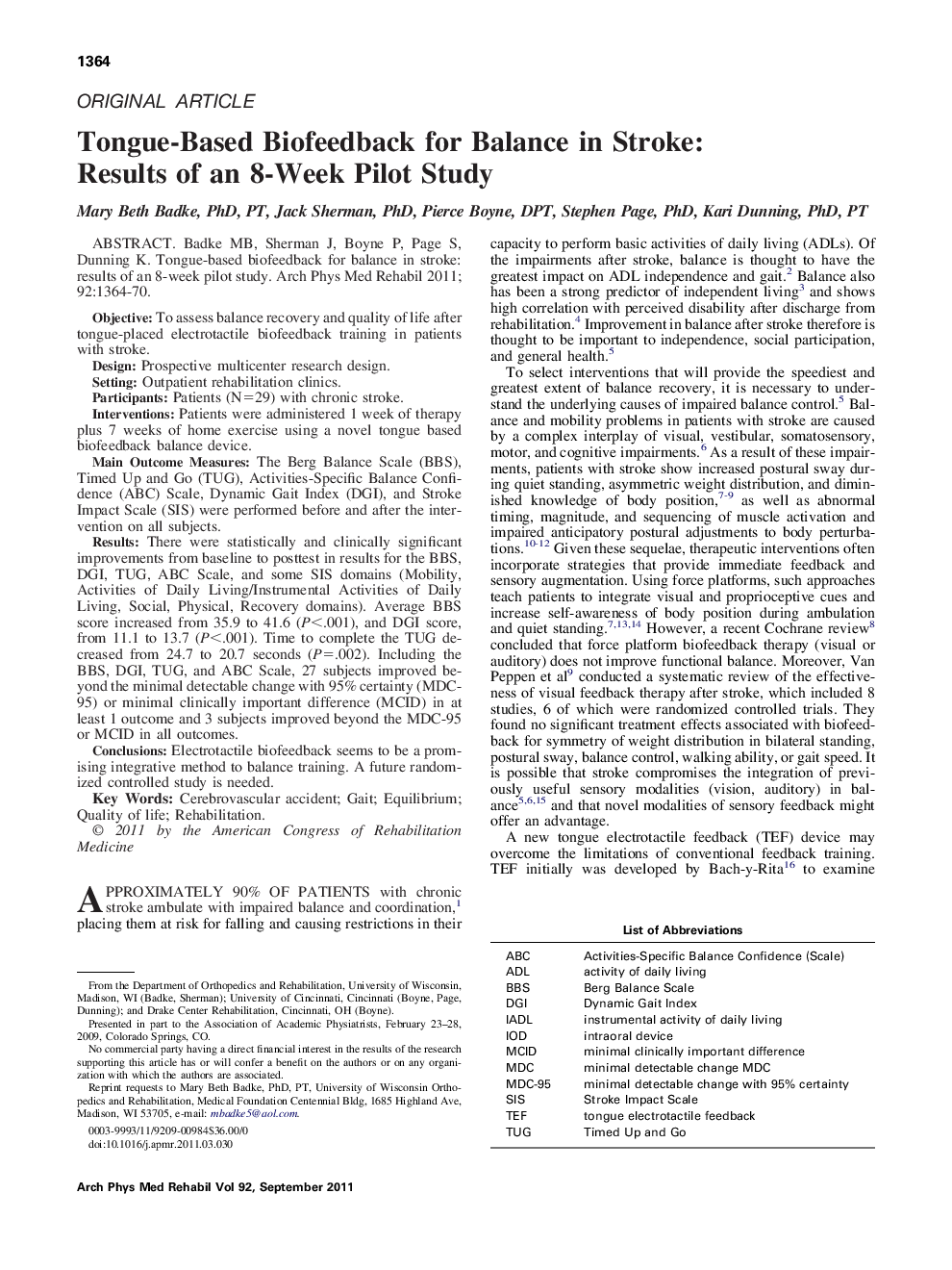| Article ID | Journal | Published Year | Pages | File Type |
|---|---|---|---|---|
| 3450549 | Archives of Physical Medicine and Rehabilitation | 2011 | 7 Pages |
Badke MB, Sherman J, Boyne P, Page S, Dunning K. Tongue-based biofeedback for balance in stroke: results of an 8-week pilot study.ObjectiveTo assess balance recovery and quality of life after tongue-placed electrotactile biofeedback training in patients with stroke.DesignProspective multicenter research design.SettingOutpatient rehabilitation clinics.ParticipantsPatients (N=29) with chronic stroke.InterventionsPatients were administered 1 week of therapy plus 7 weeks of home exercise using a novel tongue based biofeedback balance device.Main Outcome MeasuresThe Berg Balance Scale (BBS), Timed Up and Go (TUG), Activities-Specific Balance Confidence (ABC) Scale, Dynamic Gait Index (DGI), and Stroke Impact Scale (SIS) were performed before and after the intervention on all subjects.ResultsThere were statistically and clinically significant improvements from baseline to posttest in results for the BBS, DGI, TUG, ABC Scale, and some SIS domains (Mobility, Activities of Daily Living/Instrumental Activities of Daily Living, Social, Physical, Recovery domains). Average BBS score increased from 35.9 to 41.6 (P<.001), and DGI score, from 11.1 to 13.7 (P<.001). Time to complete the TUG decreased from 24.7 to 20.7 seconds (P=.002). Including the BBS, DGI, TUG, and ABC Scale, 27 subjects improved beyond the minimal detectable change with 95% certainty (MDC-95) or minimal clinically important difference (MCID) in at least 1 outcome and 3 subjects improved beyond the MDC-95 or MCID in all outcomes.ConclusionsElectrotactile biofeedback seems to be a promising integrative method to balance training. A future randomized controlled study is needed.
